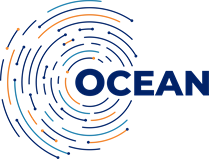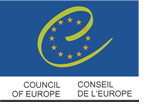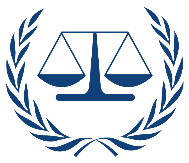
Open Council of Europe Academic Networks (OCEAN)
The Open Council of Europe Academic Networks (OCEAN) unite universities, research institutions and scholars from the Council of Europe´s 46 member states around the shared goal of human rights, democracy, and the rule of law.
OCEAN provides a platform for connecting universities, research institutions and individual academics who focus on a Council of Europe convention of their choice or other topics related to the work and mission of the Council of Europe. It serves as a resource for information on Council of Europe activities; helps to share best practices and research; connects its members to the Council of Europe and its expert teams and gives them the opportunity to join events organised by OCEAN in Strasbourg or in Council of Europe member countries offline and online.

Academic Network on the European Social Charter/Réseau Académique sur la Charte Sociale Européene
The ANESC - RACSE was established in 2006 and brings together academics who focus on the European Social Charter in their teaching and writing. The network aims to promote improved understanding and a more widespread use of the European Social Charter. This is achieved through teaching and publication both within universities and in cooperation with other governmental and non-governmental partners.
The Network also constitutes a pool of expertise on the Charter that can provide training on the instrument for public servants, judges, NGOs and unions, and organise academic conferences. The Network coordinates special issues in law reviews and seeks to promote teaching of the Charter in universities.
While independent from the Council of Europe's Secretariat of the European Social Charter, the Network works in close cooperation with the Secretariat, which has encouraged its establishment and lends support to its activities.
Details of the Network Members and assistant to the network. Details of publications by network members. Professor David Harris, Co-Chair of the HRLC, has authored an article on the European Social Charter which is downloadable in our publications section.

Council for Assisting Refugee Academics (CARA)
CARA began life in 1933, as the Academic Assistance Council, to assist academics persecuted by the Nazi regime. CARA has provided support and relief to over 9,000 academics whose academic freedom has been restricted by war and repression, from Argentina, Chile, Czechoslovakia, Ethiopia, Hungary, Iran, Iraq, Jordan (West Bank), Poland, South Africa, Sri Lanka, Uganda, USSR and Vietnam. The organisation has supported 18 academics who became Nobel laureates. Renamed the Council for Assisting Refugee Academics in 1998, CARA aims to help university teachers and researchers around the world who are unable to carry out their work on grounds of religion, political opinion or race.
CARA's Grant and Fellowship Programmes form the core of the organisation's work in providing practical assistance to displaced, refugee and at-risk academics.
The University of Nottingham is part of the UK Universities Network, a partner network set up by CARA and SAR in 2005 that helps refugee scholars in the UK as well as threatened scholars still in their home country.
HRLC received a CARA Pathfinder Grant in 2006 to identify appropriate research opportunities within the University for refugee academics and at-risk scholars.

Legal Tools Outsourcing Partners Network (LTOP)
The International Criminal Court's Legal Tools Outsourcing Partners Network comprises a group of universities and NGOs committed to maintaining and developing the collections, databases and commentaries of the ICC Legal Tools Project. This project aims to equip users with the legal information, commentaries and software required to work effectively in the field of international criminal law. The Tools currently comprise a virtual library of over 25,000 documents and legal commentaries.
With these tools, the ICC aims to provide the general public with free access to basic legal information on international criminal law. It is also aimed at supporting criminal jurisdictions, counsel and NGOs working on international crimes cases. The HRLC has created the National Implementing Legislation Database (NILD) as part of the Court’s Legal Tools, an online knowledge transfer platform developed at the ICC Office of the Prosecutor to provide the general public with free access to the most comprehensive electronic library on international criminal law and justice. Through NILD, users have access to a fully-searchable, relational database of national implementing legislation.

Association of Human Rights Institutes (AHRI)
The Association of Human Rights Institutes (AHRI) comprises 25 academic institutes specialising in research and education in the human rights field. This makes it the largest consortium of human rights research institutes in the world.
Founded in 2000, AHRI aims to promote research, education and discussion in the field of human rights. The initiative to create AHRI came from former Director of the Norwegian Centre for Human Rights, Nils Butenschøn, with the main purpose of coordinating research projects and applications for research funding, and to organise seminars and conferences.
In September 2009, HRLC hosted the 10th Annual AHRI Conference in Nottingham.

Scholars at Risk (SAR)
SAR is an international network of universities and colleges that promotes academic freedom and defends the human rights of scholars around the world.
It aims to bring scholars who are suffering from discrimination, intimidation or violence in their home country to positions at universities and research centres in safe regions. SAR began at the University of Chicago in 1999 and relocated to New York University in 2003.
In 2017, the first UK based SAR Student Advocacy Seminar was created at the University of Nottingham, with the support of HRLC and SAR. Under this initiative, students take on the case of scholars facing unjust restrictions, prosecution or imprisonment due to their academic work and create an advocacy campaign.

European Union Agency for Fundamental Rights Research Network (FRANET)
FRANET, launched in 2011, is the European Union Agency for Fundamental Rights' multidisciplinary research network. Composed of National Focal Points (NFPs) in each EU Member State and Croatia, the aim of this network is to provide the Agency with objective, reliable and comparable socio-legal data on fundamental rights issues to facilitate the FRA's comparative analyses at EU level.
HRLC is the NFP for the UK and provides data collection and research services on fundamental rights issues in the United Kingdom for the FRA and the European Institute of Gender Equality (EIGE). Under the European Human Rights Law Unit, reports and studies are prepared by a team of HRLC legal and social experts, led by Professor David Harris.